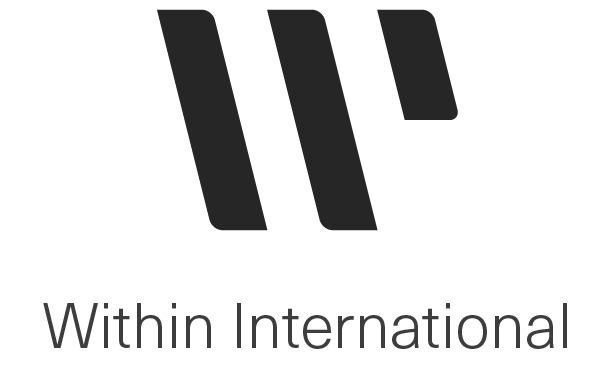
Many conversations I have with people usually start with: ‘you guys keep doing cool things… all the time…’. Hopefully, this is one of those ‘cool things’.
In my natural restlessness for pushing myself and our firm further, I have started, and finalised, a quest to becoming a Certified Executive Coach. It seemed like the natural thing to do among the ever-evolving initiatives that keep driving our business forward.
As a firm, we handpick people that have an innate ‘itch’ for knowing more, for doing more, for exploring things that have never been done before. And while asking questions is not one of these things, how you ask them is. This may be controversial, but I do believe there is such a thing as a stupid question. In the words of Voltaire, ‘judge a man by his questions, not by his answers’.
The pursuit of an Executive Coaching certification was not born from a desire to add another credential to the wall. It emerged from a realisation that the most transformative conversations I have had with clients, colleagues and the great people that surround us have never been about what they should do. They have been about what questions they should be asking themselves. And more importantly, what questions they have been avoiding.
In our nineteen years of working with global businesses, I have observed an intriguing pattern. The most successful leaders are not those who have all the answers. They are the ones who have mastered the art of inquiry. They understand that in a world where information is abundant but insight is scarce, the ability to ask the right question at the right moment is what separates exceptional leadership from mere management.
This is where Executive Coaching intersects beautifully with what we have always done at Within International. We have built our reputation on understanding what others do not see the importance of. We have thrived by asking our clients the questions that make them uncomfortable, that challenge their assumptions, that force them to confront the gap between where they are and where they could be. But here is what I have learned through my coaching certification, combined with my current studies in Applied Neuroscience at King’s College: there is a profound difference between asking questions to extract information and asking questions that create lasting change. The former is interrogation; the latter is transformation.

The science behind transformative inquiry
What fascinates me most about my neuroscience studies is how they elucidate what happens during effective coaching conversations. Recent meta-analyses of randomised controlled trials have provided compelling evidence for the effectiveness of executive coaching interventions [1]. Research shows that when we challenge someone to think differently, to consider new perspectives, or to question their assumptions, we are facilitating genuine cognitive change [2]. This is precisely why transformative coaching is so effective: neuroscience research using fMRI technology shows that when coaching focuses on possibilities and aspirational thinking, it creates the optimal neurological environment for personal development, avoiding the cognitive tension that can arise from purely problem-focused approaches [3].
The adult brain remains remarkably adaptable throughout life – a concept known as neuroplasticity. Over forty years of research have established that the mature brain is far from fixed, with numerous factors, including environmental stimulation, learning, and targeted interventions, capable of inducing structural and functional changes [4]. This means that the patterns of thinking and responding that have served leaders in the past can be modified and improved.
This is not metaphorical change. It is measurable, biological change. A comprehensive meta-analysis of executive coaching studies found that coaching interventions produce particularly strong effects on behavioural outcomes, with significant positive impacts on self-efficacy, psychological capital, and resilience [1]. These findings are remarkable because they demonstrate that coaching can create change even in dimensions previously considered relatively stable over time.
When I work with executives now, I am not just applying communication strategies or brand positioning principles, although those remain crucial. I am engaging with the cognitive patterns that drive decision-making, the biases that shape perception, and the emotional responses that determine how leaders react under pressure.
Consider this: every strategic decision, leadership challenge, moment of crisis, or opportunity that crosses an executive’s desk is processed through mental frameworks shaped by years of experience, habit, and conditioning. Traditional consulting addresses the symptoms: the strategy, the process, the output. Executive Coaching addresses the source: the thinking patterns that generate those decisions.
Executive Coaching addresses the source: the thinking patterns that generate those decisions. This is not about therapy or personal development for its own sake. This is about recognising that in an era where artificial intelligence can process data faster than any human, where algorithms can predict market trends with increasing accuracy, the irreplaceable value that leaders bring lies in their uniquely human capabilities: their capacity for ingenious problem-solving, emotional intelligence, and adaptive thinking.
The psychology of leadership excellence
My studies have revealed something remarkable about high-performing leaders: they demonstrate distinct patterns of thinking and behaviour that can be developed and strengthened through targeted coaching interventions. Neuroscience research has identified that effective leadership actually involves the coordination of antagonistic neural networks, with different brain systems underlying task-oriented versus socio-emotional leadership roles [5]. This neurobiological foundation explains why the most effective leaders are those who can flexibly engage different cognitive and emotional systems depending on the situation.
Research on leadership self-efficacy (an individual’s confidence in their ability to carry out necessary leadership behaviours) shows strong associations with actual leadership effectiveness [6]. Studies have demonstrated that leadership self-efficacy can be developed through leadership development programmes, creating a direct pathway from coaching interventions to improved performance.
Furthermore, research on psychological capital comprising of hope, efficacy, resilience, and optimism has shown that these four components enhance both well-being and performance [7]. What makes this particularly relevant to executive coaching is that psychological capital can be developed through targeted interventions and has been shown to drive better leadership outcomes.
Emotional intelligence research has established it as a core coaching competency. Studies demonstrate that executive coaching can increase emotional intelligence while simultaneously decreasing work-related stress [8]. A comprehensive review of 104 peer reviewed articles on emotional intelligence, leadership, and teams confirms that emotional intelligence in leaders improves team performance [9].
This is where the science becomes practical. When I ask an executive, ‘What assumptions are you making about this situation that you have not examined?’ I am not just encouraging reflection. I am helping them develop critical thinking skills and self-awareness. When I guide them through exercises that help them recognise their emotional responses to challenging situations, I am helping them develop emotional intelligence and improve their capacity for regulation under pressure. When I challenge them to consider multiple perspectives on a complex problem, I am enhancing their cognitive flexibility and improving their decision-making capabilities.




Beyond the Boardroom: the ripple effect of enhanced leadership
What makes Executive Coaching particularly compelling in our context at Within is how these cognitive and emotional developments amplify everything else we do. When we work with a client on their brand positioning, we are not simply framing messages for external audiences. We are helping leaders develop the clarity to articulate their vision in a way that resonates because they have done the cognitive work to understand what they truly stand for.
When we develop communication strategies, we are not just creating frameworks. We are enabling leaders to communicate with the kind of clarity and conviction that only comes from deep self-awareness and intentional thinking. The ripple effects are extraordinary. I have watched executives who have engaged in evidence-based coaching transform not just their own performance, but the entire culture of their organisations. They become more decisive without being autocratic, more collaborative without losing authority, more innovative without sacrificing stability.
They learn to ask their teams the kinds of questions that activate collective intelligence rather than individual compliance. They develop the emotional agility to navigate complex stakeholder relationships with nuance and sophistication. They cultivate the strategic patience to make long-term decisions in a short-term world. Most importantly, they understand that leadership is not about having the right personality or the right background. It is about developing the right–thinking patterns and emotional capabilities. And these can be changed.
The Within International difference
What sets our approach to Executive Coaching apart is the same thing that has always differentiated us: we understand that excellence is not about following a formula. It is about applying tested principles to unique circumstances with precision and creativity.
Our coaching is not generic. It is informed by a continuous and deep understanding of the professional services landscape, our experience working with global businesses, our commitment to our principle of always pushing our clients further, and now, by cutting-edge research in psychology and neuroscience. We do not just help executives become better leaders. We help them develop the specific capabilities required to lead their specific organisations, in their specific markets, facing the specific challenges that keep them awake at night.
This is coaching that understands the difference between a law firm managing partner and a consulting firm CEO, between a financial services executive navigating regulatory change and a technology leader scaling through hypergrowth. Context matters. Awareness matters. The ability to ask not just good questions, but the right questions that create the right insights for the right person at the right moment. That is what transforms potential into performance.

An investement in cognitive capital
For the leaders reading this, I want you to consider something. You invest in technology to improve efficiency. You invest in talent to build capability. You invest in marketing to drive growth (although, you can always invest more there…). But when did you last invest in the one factor that influences every other investment you make – your own cognitive and emotional capabilities?
Executive Coaching is not a cost. It is an investment in cognitive capital. Every decision you make, every relationship you build, every strategy you implement is enhanced by the development of your capacity for leadership. The return on investment is not just measurable. It is essential and transformational. Multiple meta-analyses have confirmed that workplace coaching produces positive outcomes with moderate to strong effect sizes, with both face-to-face and virtual coaching showing significant benefits [10].
Importantly, research shows that the number of coaching sessions is not the primary determinant of success. It is the quality of the intervention and the commitment to change.
For the organisations considering this investment for their leaders, the question is not whether you can afford Executive Coaching. It is whether you can afford not to develop the cognitive and emotional capabilities that will determine your competitive advantage. In a landscape where the difference between good and exceptional is often measured in marginal points, the leader who has developed superior patterns for decision-making, emotional regulation, and strategic thinking – that leader is your competitive advantage.
The invitation
So here is my invitation to you. Whether you are a leader who has achieved success but knows there is another level of development waiting, or an organisation that recognises the untapped potential in your executive team’s collective capabilities, consider this: the wheels keep turning not because we are restless, but because we are relentless in our pursuit of what human potential can achieve.
Executive Coaching informed by science is not about fixing what is broken. It is about developing what is possible. It is about transforming good leaders into great ones by enhancing their cognitive and emotional capabilities, and great leaders into the kind of visionaries who do not just adapt to change. They create it through superior thinking and awareness.
The questions that will define your next chapter are waiting to be asked. The capabilities that will determine your success are waiting to be developed. The only question remaining is: are you ready and unafraid to challenge how you think?
References
[1] Frontiers in Psychology. (2023). The effects of executive coaching on behaviors, attitudes, and personal characteristics: a meta-analysis of randomized control trial studies.
[2] Jack, A. I., Boyatzis, R. E., Khawaja, M. S., Passarelli, A. M., & Leckie, R. L. (2013). Visioning in the brain: an fMRI study of inspirational coaching and mentoring. Social Neuroscience, 8(4), 369-384.
[3] Frontiers in Human Neuroscience. (2023). When fixing problems kills personal development: fMRI reveals conflict between Real and Ideal selves.
[4] Fuchs, E., & Flügge, G. (2014). Adult Neuroplasticity: More Than 40 Years of Research. Neural Plasticity, 2014, 541870.
[5] Boyatzis, R. E., Rochford, K., & Jack, A. I. (2014). Antagonistic neural networks underlying differentiated leadership roles. Frontiers in Human Neuroscience, 8, 114.
[6] PMC. (2021). From Believing to Doing: The Association Between Leadership Self-Efficacy and the Developmental Leadership Model.
[7] American Psychological Association. (2023). Psychological capital: What it is and why employers need it now.
[8] Sage Journals. (2023). Coaching to Develop Emotional Intelligence and Decrease Work Family Conflict.
[9] PMC. (2023). Emotional intelligence, leadership, and work teams.
[10] Frontiers in Psychology. (2023). Workplace coaching: a meta-analysis and recommendations for advancing the science of coaching.














